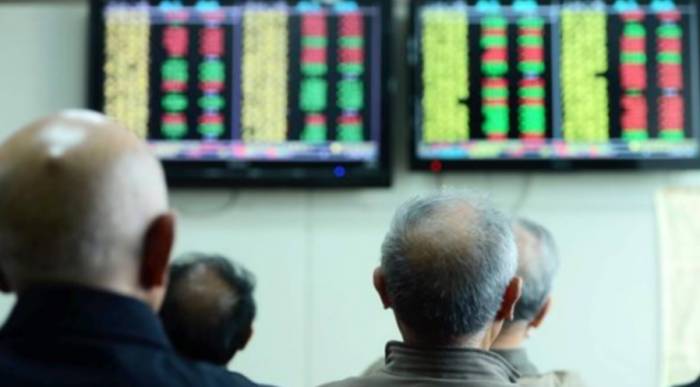The A-share market in 2024 was like a roller coaster ride. At the opening, the Shanghai Composite Index soared, rising by 337 points and jumping directly above 3,600 points. Before everyone had time to rejoice, they were left dumbfounded an hour later—the increase had shrunk to just 38 points. What was going on? Was someone manipulating things behind the scenes?
From Jubilation to Panic: A Day in the A-share Market
The market movement this time was truly astonishing. When the market opened in the morning, there was a burst of exuberance, with nearly 4,000 stocks hitting their upper limit, and 90% of sectors seeing gains exceeding 10%. Everyone thought the bull market had finally arrived, but little did they know that the good times wouldn't last.
Trader Xiao Li recalled, "I was still congratulating myself for having bottom-fished correctly, only to see the index plummet straight down in the blink of an eye, which made my palms sweat with fear."
Indeed, within just one hour, the market seemed to be doused with a bucket of cold water. The three major indices opened high but trended downward, with the ChiNext Index falling from a rise of 18.44% to 7.43%. What was even more alarming was that the main force capital actually saw a net outflow of 150 billion yuan! This left many retail investors utterly confused.
As the A-share market dived, the Hong Kong stock market and the A50 futures also followed suit. The Hang Seng Index and the China Enterprises Index once fell nearly 10%, and the Hang Seng Technology Index plummeted by more than 15%. The Chinese securities sector was even more unbearable to watch, once falling by 42%!
The Mystery Behind Capital Flows
So, what exactly caused this dramatic market fluctuation? There are reports that financial regulatory authorities provided guidance through backdoor channels, requiring banks to strictly prohibit non-compliant entry of credit funds into the stock market, and emphasized the need to strengthen investor appropriateness management and internal control compliance management, strictly controlling leverage.

As soon as this news came out, the market was in an uproar. Some said this was pouring cold water on the bull market, while others believed it was to prevent the market from overheating. But regardless, this guidance did have a significant impact on the market.
An industry insider revealed, "Actually, this kind of backdoor guidance is not uncommon, but this time it came a bit suddenly. Many investors didn't react in time, which is why there was such a big fluctuation."It is worth noting that despite the significant market downturn, the trading volume for half a day approached 2.5 trillion yuan, a figure that is truly staggering. It seems that many investors still have confidence in the market.
Bull market or bear market? Investors are confused.
Faced with such violent market fluctuations, many investors feel very puzzled. Some believe that this is just a normal adjustment in a bull market, while others worry that this may be the beginning of a bear market.
Veteran investor Uncle Zhang said: "I have experienced many bull and bear market transitions, and this time the situation is indeed a bit special. But I think, as long as there are no major changes in the fundamentals, it is still okay to be optimistic in the long term."
However, many new investors entering the market have expressed their concerns. Xiao Wang said: "I have just started investing in stocks, and I have encountered this situation. I really don't know what to do. Should I cut my losses and leave the market?"
In fact, the direction of the market is indeed difficult to predict. Even professional analysts find it hard to accurately judge the future trend. In this situation, maintaining rationality and calmness is particularly important.
Deep reasons behind market fluctuations.
In fact, the violent fluctuations in the market this time are not accidental. From a deeper perspective, this reflects some structural issues in the current market.
The structure of investors in the A-share market is still dominated by retail investors, which leads to irrational rises and falls in the market. The recent rapid rise in the market, with valuation levels already at a high position, has also increased the possibility of a correction.
The uncertainty of the global economic situation also brings pressure to the market. An economist pointed out: "Now the global economic recovery is still unstable, and the policies of various countries are constantly being adjusted. These factors will all affect the A-share market."However, some believe that this fluctuation might actually be a good thing. They argue that it could help the market to eliminate some speculative capital, allowing companies with real value to stand out.
Where do we go from here? Let the wind sing.
So, in the face of such a market environment, how should investors respond?
Experts suggest that investors should remain calm and not be swayed by short-term market fluctuations. At the same time, they should also pay attention to risk control and avoid overusing leverage.
Some also propose that this could be a great opportunity to "buy the dip." However, this view is also controversial, after all, no one can accurately predict where the market's bottom is.
The recent sharp fluctuations in the A-share market have sounded an alarm for us. It reminds us that investing is always a marathon, not a sprint. In this process, we need to remain rational and prepare for long-term investment.
As for what the future holds, no one can say for sure. Perhaps tomorrow the sun will rise as usual, and the market will be a different scene. But no matter what, this "major earthquake" will surely become an important milestone in the history of A-shares, worthy of our deep reflection.